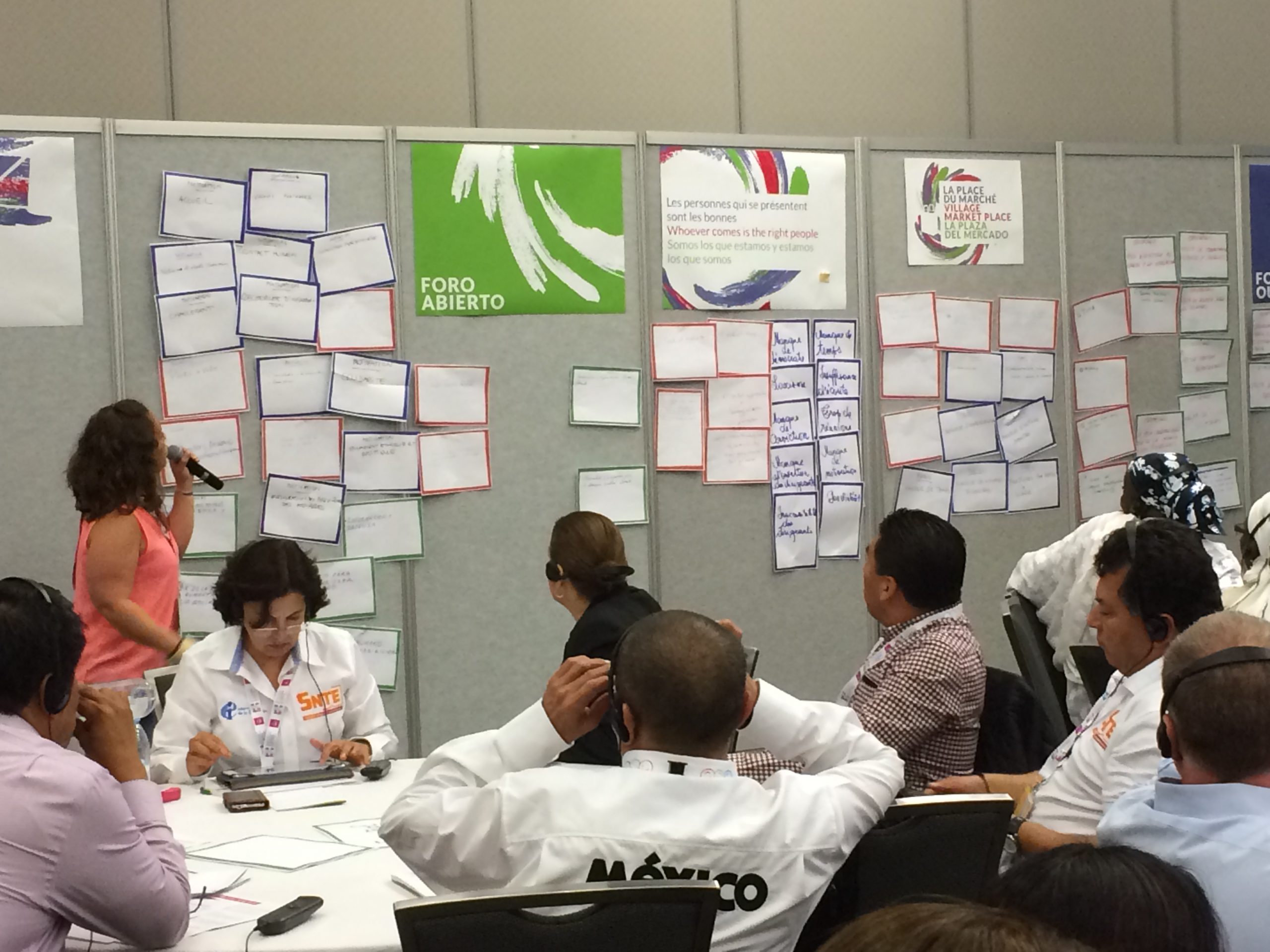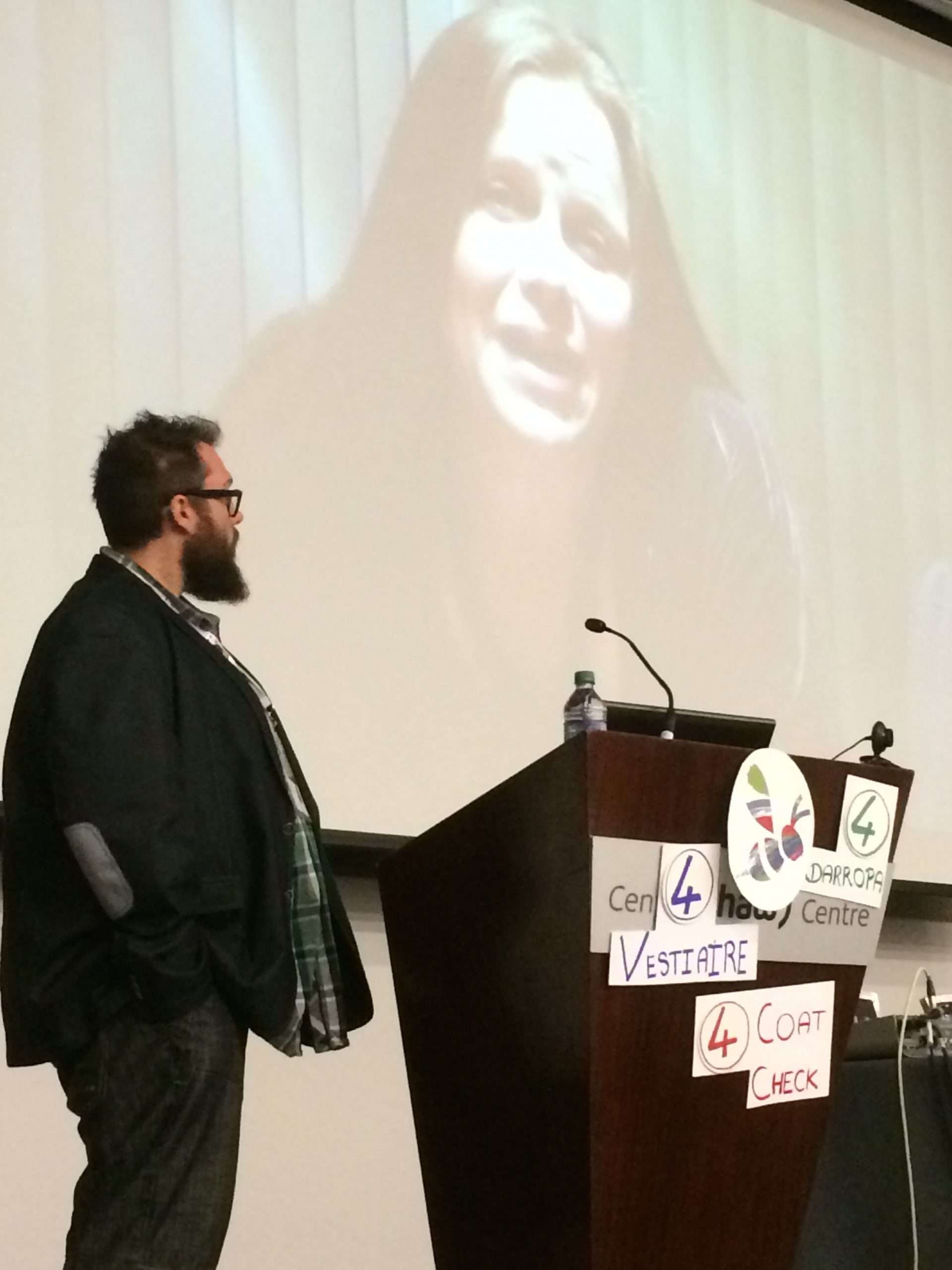On Monday 20 July in the afternoon, the Education and Solidarity Network organised a collaborative workshop in order to reflect on the barriers to and incentives for involving young people in solidarity type organisations: unions, mutual benefit societies, associations, cooperatives, etc. This workshop was designed by 3 young teachers who were there to lead it.

In order to reflect on the basis of actual testimonies, Dany GRAVEL, Isabelle NOREAU and Linda BEN JEMAA conducted a questionnaire which they distributed online and with the social networks prior to the Congress. Around one hundred respondents completed this, giving the reasons why they are or are not members, activists or volunteers. Several interviews with young colleagues were also filmed. This workshop in Ottawa thus enabled “the voices of young people” to be heard at the 7th World Congress of Education International.

It is on the basis of these actual concrete testimonials that the participants were able to work on identifying the barriers and incentives. A huge map was created there and then. Here are a few of the main results:
Barriers identified:
- Reconciling professional/personal life: balance between work, campaigning, personal life and family, etc.
- Instability of the economic and professional situation of young people; lack of financial means and time, etc.
- Lack of openness and accessibility of leaders; lack of democracy in the organisations, etc.
- Lack of programmes, activities, representation, targeted at young people, etc.
- Too much talking, too many meetings, lack of direct concrete action, etc.
- Prejudices, clash of generations, etc.
Incentives identified:
- Warm welcome, human contact, kindness and accessibility, etc.
- An area in which to learn and to be listened to; availability of information, etc.
- Notion of common and collective interest; shared values; personal convictions; solidarity; change; an ethical and political commitment; shared objectives and ideals, etc.
- Professional development; improvement of well-being, etc.
- Modern communication; social networks; visibility on media, etc.
Solutions devised:
- Make the union welcoming; welcome young people; organise social activities; maintain human and personal contact (“from colleague to colleague”) etc.
- Make young people responsible for recruiting young people; create networks of young people to enable virtual involvement and connectivity, but also actual meetings; go to see students, etc.
- Make the governance of the union accessible; give a place and a voice to young people in the activities; reflect with them on the needs, issues and solutions which would be adapted to their situation; recognise their contribution; ensure a balance between men and women, etc.
- Provide specific services for young people: “flexible” membership (cheaper, part time); offers of cooperative banks and mutual health insurance, etc.
- Propose professional development programmes to young people and support for their day-to-day job; leadership and mentorship.
The results of this workshop will provide input for the work of Education International and other partners and members of the Network on the problem of renewing members and activists.
Find more pictures on our Facebook page !




